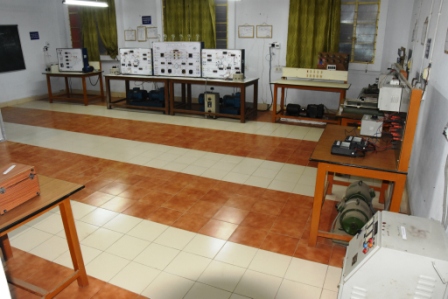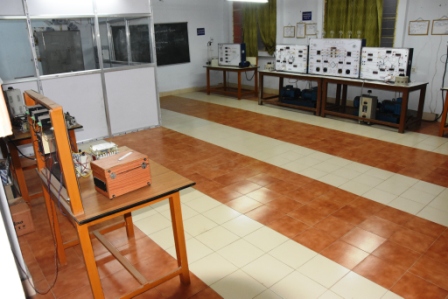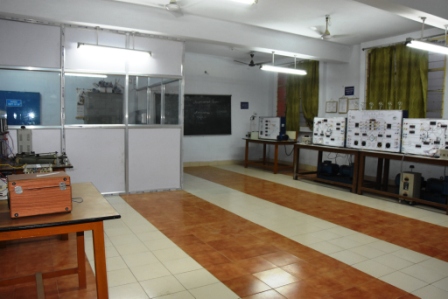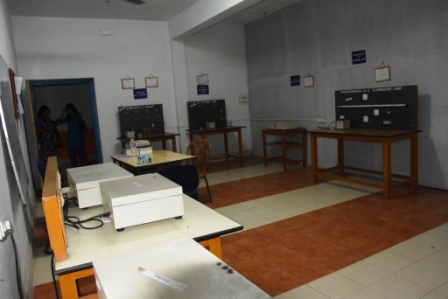
Academic Programme
Electrical Engineering
- 4 years and conducted in 8 semesters Qualification: Pass in 10+2.
- An encouraging and competitive environment that enables academic growth.
➤Class / Tutorial Rooms/ Seminar Rooms.
➤Computer Centre
➤HOD's Room & Departmental Office.
➤Departmental Internet Centre & e-Library.
➤Basic Electrical Engineering.
➤Electrical.
➤Power System.
➤Control Systems
➤Power Electronics and Electric Drives.
➤Signals and Systems; Digital Signal Processing.
➤Measurement and Instrumentation.
➤Circuit Theory and Network.
➤Microprocessor.
To produce globally competent Electrical Engineers with high human values.
To be one of the best Electrical Engineering department of the country.
➤To establish top-of-the class laboratories in all domains of Electrical Engineering.
➤To be an identified research center in the areas of permanent magnet machines, power system (protection and analysis) and control system.
➤To be a department with 100% Ph. D. faculty.
➤To ensure a continuous value addition of all employees.
➤To develop innovative, multi institutional, multi- objective, web based, “Integrated Energy Systems Laboratory”.
➤To play “flagship role” for enrichment of electrical engineering education in the country.
➤To establish centre of Excellence in the area of “Smart Renewable Energy Systems.
➤Electrical Engineering graduates will be employable in the diversified sectors of the industry, government organizations, public sector and multinational corporations and/or pursue higher education in electrical engineering or other fields of their interests, at institutes of repute and high standard.
➤Graduates will demonstrate measurable progress in the fields they choose to pursue.
➤Graduates will be able to communicate effectively, adopt lifelong learning, act with Integrity and have inter-personal skills needed to engage in, lead and nurture diverse teams, with commitment to their ethical and social responsibilities.
➤The program outcomes describe what students expected to know or be able to do by the time of graduation from the program. After completing the Electrical Engineering course the students will gain - Knowledge of science, mathematics, and engineering principles.
➤Ability to apply this knowledge of science, mathematics, and engineering principles for solving problems.
➤Ability to identify, formulate and solve Electrical Engineering problems in the broad areas like electrical machines, analog and digital electronics, power systems and control systems.
➤Ability to understand and use different software tools in the domain of circuit, field, power system, control system simulations.
➤Ability to design and conduct experiments and analyze and interpret data.
➤Ability to exhibit management principles and function as a member of a multidisciplinary team.
➤Sensitivity towards professional and ethical responsibility.
➤Ability to communicate effectively in writing as well as through public speaking.
➤Ability to appreciate and engage in lifelong learning.
➤Knowledge of contemporary issues.
➤An ability to use the techniques, skills, and modern engineering tools necessary for engineering practice.
Electrical engineering is a field of engineering that generally deals with the study and application of electricity, electronics, and electromagnetism.






